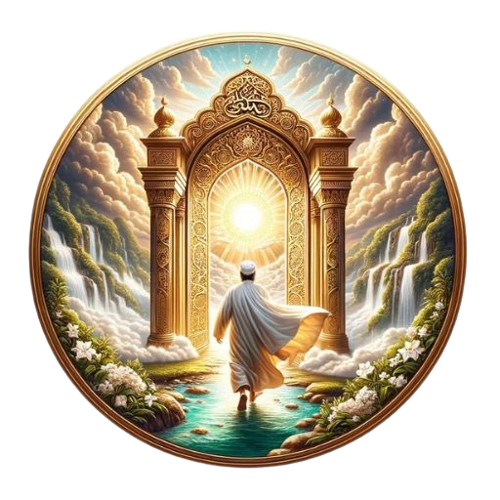Prophet Lut (Lot, peace be upon him) is mentioned several times in the Quran, where his story is narrated as part of the broader prophetic narratives. The story of Lut (PBUH) centers around his mission to the people of Sodom, who were known for their immorality and sinful practices. His life and message serve as an important lesson about the consequences of rejecting God’s commands.
Here is a breakdown of the mentions of Prophet Lut (PBUH) in the Quran along with English translations, transliterations, and supporting Hadith where relevant:
1. Surah Al-A’raf (7:80-84)
Arabic: وَلُوطًا إِذْ قَالَ لِقَوْمِهِ أَتَأْتُونَ الْفَاحِشَةَ مَا سَبَقَكُم بِهَا مِنْ أَحَدٍ مِّنَ الْعَالَمِينَ (٨٠) إِنَّكُمْ لَتَأْتُونَ الرِّجَالَ شَهْوَةً مِّن دُونِ النِّسَاءِ ۚ بَلْ أَنتُمْ قَوْمٌ مُّسْرِفُونَ (٨١)
Transliteration: Wa Lootan iz qaala liqawmihee a’taatoonal faahishata maa sabaqakum biha min ahadim minal ‘aalameen (80) Innakum lataatoonar rijaala shahwatam min doonin nisaa’; bal antum qawmum musrifoon (81)
Translation: “And (We sent) Lut when he said to his people, ‘Do you commit such immorality as no one has preceded you with from among the worlds? (80) Indeed, you approach men with desire, instead of women. Rather, you are a transgressing people.’ (81)”
Prophet Lut (PBUH) condemns his people for their immoral acts, specifically for engaging in homosexual relationships, which was unprecedented at that time. He warns them of their wrongdoing.
2. Surah Hud (11:77-83)
Arabic: وَلَمَّا جَاءَتْ رُسُلُنَا لُوطًا سِيءَ بِهِمْ وَضَاقَ بِهِمْ ذَرْعًا وَقَالَ هَٰذَا يَوْمٌ عَصِيبٌ (٧٧)
Transliteration: Wa lammaa jaaa’at rusulunaa Lootan see’a bihim wa daaqa bihim zar’anw-wa qaala haazaa yawmun ‘aseeb (77)
Translation: “And when Our messengers came to Lut, he was distressed for them and felt for them great discomfort and said, ‘This is a trying day.’ (77)”
When the angels (in the form of men) came to visit Prophet Lut (PBUH), he was anxious and troubled because he feared how his people would behave towards them.
3. Surah Al-Hijr (15:61-77)
Arabic: فَلَمَّا جَاءَ آلَ لُوطٍ ٱلْمُرْسَلُونَ (٦١) قَالَ إِنَّكُمْ قَوْمٌ مُّنكَرُونَ (٦٢)
Transliteration: Falammaa jaaa’a aala Lootil mursaloon (61) Qaala innakum qawmum munkaroon (62)
Translation: “So when the messengers came to the family of Lut, (61) He said, ‘Indeed, you are people unknown (to me).’ (62)”
The messengers, who are angels, visit Prophet Lut (PBUH) before the punishment is about to befall his people. This passage highlights Prophet Lut’s (PBUH) concern and realization of impending doom.
4. Surah Ash-Shu’ara (26:160-175)
Arabic: كَذَّبَتْ قَوْمُ لُوطٍ ٱلْمُرْسَلِينَ (١٦٠)
Transliteration: Kazzabat qawmul Lootil mursaleen (160)
Translation: “The people of Lut denied the messengers. (160)”
Summary: This passage describes the outright denial of Prophet Lut’s (PBUH) message by his people. Despite his warnings, they continued in their sinful ways, which ultimately led to their destruction.
5. Surah Al-Qamar (54:33-39)
Arabic: كَذَّبَتْ قَوْمُ لُوطٍۢ بِٱلنُّذُرِ (٣٣)
Transliteration: Kazzabat qawmul Lootin binnuzur (33)
Translation: “The people of Lut denied the warning. (33)”
Summary: The people of Prophet Lut (PBUH) are described as having rejected all the warnings sent to them, and as a result, they faced a severe punishment from Allah.
6. Surah Al-Ankabut (29:28-35)
Arabic: وَلُوطًا إِذْ قَالَ لِقَوْمِهِۦٓ إِنَّكُمْ لَتَأْتُونَ ٱلْفَـٰحِشَةَ مَا سَبَقَكُم بِهَا مِنْ أَحَدٍۢ مِّنَ ٱلْعَـٰلَمِينَ (٢٨)
Transliteration: Wa Lootan iz qaala liqawmihee innakum lataatoonal faahishata maa sabaqakum biha min ahadim minal ‘aalameen (28)
Translation: “And (We sent) Lut when he said to his people, ‘Indeed, you commit such immorality as no one has preceded you with from among the worlds. (28)'”
Summary: This verse reiterates the immorality of the people of Lut (PBUH) and their persistence in sinful behavior, despite his warnings.
Relevant Hadith on Prophet Lut (PBUH)
Hadith 1:
Narrated by Ibn Abbas:"The Prophet (PBUH) cursed effeminate men and those women who assume the manners of men, and he said, 'Turn them out of your houses.' The Prophet (PBUH) turned such and such person out, and Umar also turned out such and such person.”
(Sahih Bukhari, Hadith 5886)
Hadith 2:
Narrated by Abu Hurairah:
“The Prophet (PBUH) said, ‘Whoever you find doing the action of the people of Lut, kill the one who does it, and the one to whom it is done.'”
(Sunan Ibn Majah, Hadith 2561)
The story of Prophet Lut (Lot, peace be upon him) is one of the most prominent tales in the Quran, serving as a powerful lesson on the consequences of immorality and the rejection of divine guidance. His story is intertwined with the broader prophetic mission to lead humanity toward righteousness and away from sinful behavior. The main account of his life and mission revolves around his struggle with the people of the cities of Sodom and Gomorrah, who were known for their immoral actions, particularly for engaging in homosexual acts and other forms of debauchery.
Prophet Lut (Lot, peace be upon him) Early Life

Prophet Lut (PBUH) was a nephew of Prophet Ibrahim (Abraham, PBUH), and he accompanied Ibrahim in his journeys to spread the message of monotheism (belief in one God). Lut was eventually sent as a prophet to the cities of Sodom and Gomorrah, where the people had indulged in rampant immorality and corruption.
The people of Sodom were infamous for their acts of wickedness, including robbery, aggression, and, most notably, engaging in sexual relations between men. Their perverse behavior was something that had not been seen before on such a large scale. Lut (PBUH) was sent by Allah to guide them back to the path of righteousness and to warn them about the severe consequences of their sinful behavior.
Prophet Lut (Lot, peace be upon him) Message to His People
Prophet Lut (PBUH) consistently preached to the people of Sodom, warning them against their immoral practices and calling them to abandon their sinful ways and turn to Allah. He condemned their homosexuality, theft, and general corruption.
In the Quran, Prophet Lut (PBUH) is quoted saying:
“Do you commit such immorality as no one has preceded you with from among the worlds? Indeed, you approach men with desire, instead of women. Rather, you are a transgressing people.”
(Surah Al-A’raf, 7:80-81)
Despite his warnings, the people of Sodom mocked and rejected him. They arrogantly challenged Lut (PBUH) to bring down Allah’s punishment if he was telling the truth:
“And the answer of his people was not but they said, ‘Expel them from your city! Indeed, they are men who keep themselves pure.'”
(Surah Al-A’raf, 7:82)
The Visit of the Angels
After Lut’s repeated warnings went unheeded, Allah decided to send His punishment upon the people of Sodom. Allah sent angels, disguised as handsome young men, to visit Prophet Lut (PBUH) and inform him of the impending punishment. The angels first stopped by the home of Prophet Ibrahim (PBUH) to inform him of the punishment coming to the people of Sodom, and then they continued to Sodom to meet Lut.
When these angels arrived at the city, Lut (PBUH) was deeply distressed. He feared for their safety, knowing the wicked desires of his people. In a state of panic, he implored the visitors not to stay out in public, as he knew what his people might do. The people of Sodom soon became aware of the visitors and rushed to Lut’s home, demanding that he hand over the visitors so they could act upon their immoral desires.
Prophet Lut (PBUH) tried to dissuade his people, offering even his daughters in marriage to them instead:
“My people, here are my daughters. They are purer for you. So fear Allah and do not disgrace me concerning my guests.”
(Surah Hud, 11:78)
However, the people persisted in their evil demands. At that moment, the angels revealed their true identity to Prophet Lut (PBUH) and assured him that they were messengers from Allah, sent to deliver the punishment to the people of Sodom. They instructed Lut to leave the city with his family at night and not to look back, for the destruction would soon begin.
The Punishment and Destruction
As commanded, Prophet Lut (PBUH) left the city with his daughters, but his wife, who had secretly sympathized with the people of Sodom, remained behind. She was among those who were destined to face the punishment. Allah’s wrath came upon the people of Sodom in the form of a mighty punishment.
In the Quran, it is described as follows:
“So when Our command came, We made the highest part [of the city] its lowest and rained upon them stones of layered hard clay.”
(Surah Hud, 11:82)
The angels turned the city upside down, and stones rained down upon them, obliterating the city and its people. The only survivors were Lut (PBUH) and his daughters, as they had followed the command to leave and not look back. His wife was destroyed alongside the sinful people because she had sided with them.
Lessons from the Story of Prophet Lut (PBUH)
- Moral Decay and Its Consequences: The people of Sodom were destroyed because of their continued engagement in immoral behavior, particularly their sexual transgressions, despite repeated warnings from Prophet Lut (PBUH). The story serves as a reminder that persistence in sin and rejection of divine guidance leads to destruction.
- Obedience to Divine Command: Prophet Lut (PBUH) remained steadfast in his obedience to Allah despite living among a corrupt society. His patience and perseverance in delivering the message of truth, even when faced with ridicule and rejection, is a lesson in the importance of standing firm on one’s principles.
- Judgment and Mercy: The destruction of Sodom demonstrates Allah’s justice. However, the salvation of Prophet Lut (PBUH) and his family also shows Allah’s mercy to those who follow His commands.
- The Role of Prophets: The story emphasizes that prophets are sent as warners to their people. Despite Prophet Lut’s (PBUH) sincere efforts, his people rejected him, showcasing that the role of prophets is to guide, but ultimately, it is the people’s choice whether to accept the guidance.
Quranic References:
- Surah Al-A’raf (7:80-84) – Describes the sins of the people of Sodom and their rejection of Lut’s warnings.
- Surah Hud (11:77-83) – Tells the story of the angels’ visit and the destruction of the cities.
- Surah Ash-Shu’ara (26:160-175) – Details the denial of the message by the people of Sodom.
- Surah Al-Qamar (54:33-39) – Discusses the punishment that befell the people for denying Lut.
- Surah Al-Ankabut (29:28-35) – A recount of the immorality of the people and Lut’s warning to them.
Relevant Hadith:
Several hadiths reinforce the moral lessons from the story of Lut (PBUH). One such hadith mentions the Prophet Muhammad (PBUH) warning against the same sinful behavior as the people of Lut:
“Whoever you find doing the actions of the people of Lut, kill the one who does it, and the one to whom it is done.”
(Sunan Ibn Majah, Hadith 2561)
This hadith highlights the severity of such actions in Islam and underscores the importance of adhering to the moral code prescribed by Allah.
The story of Prophet Lut (PBUH) serves as a timeless lesson about morality, obedience to Allah, and the consequences of ignoring divine warnings. It emphasizes the importance of standing firm in the face of corruption and holding onto faith even in difficult circumstances.
Also, read Story of Prophet Saleh (Pbuh)

